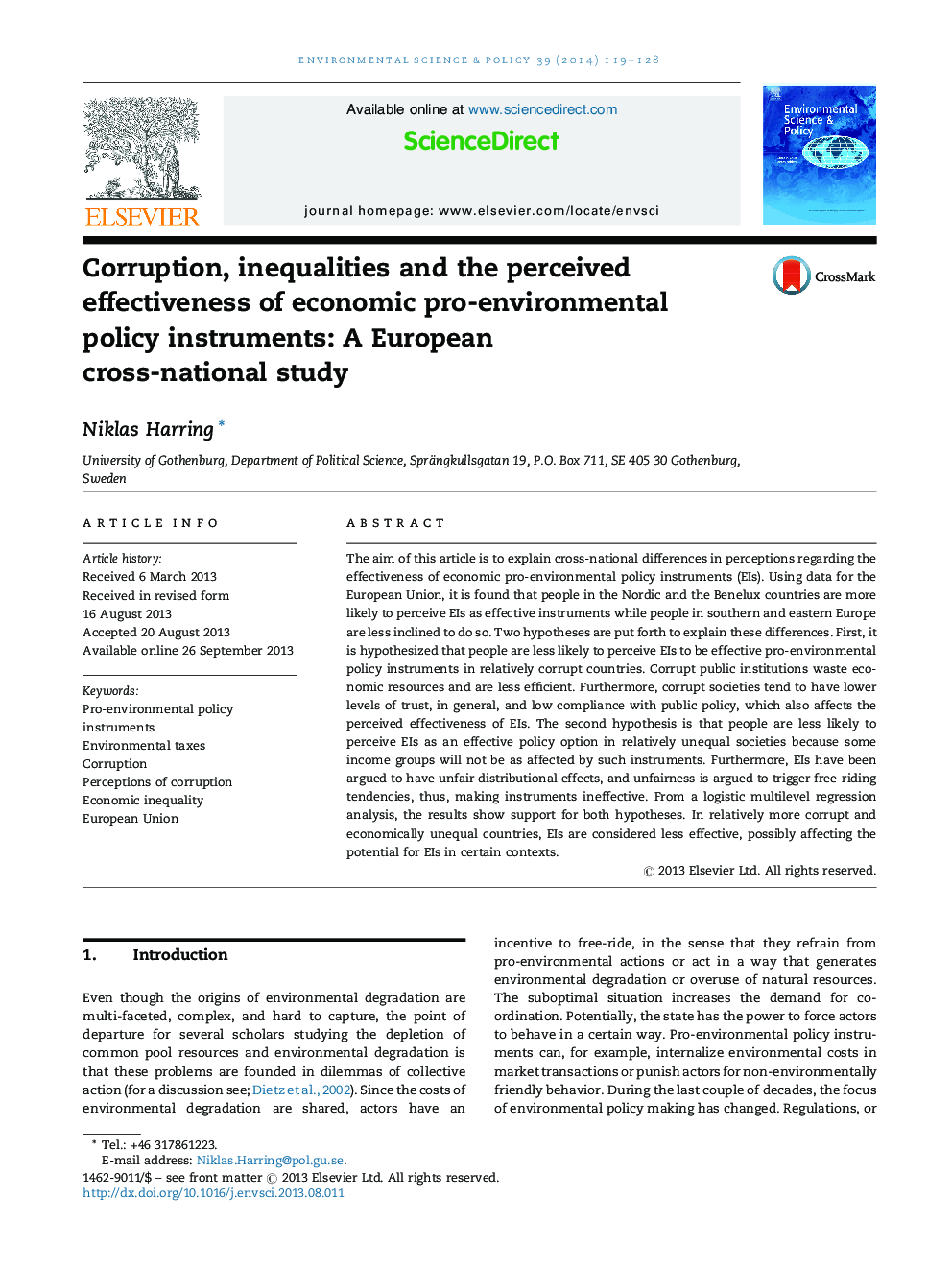| Article ID | Journal | Published Year | Pages | File Type |
|---|---|---|---|---|
| 7467855 | Environmental Science & Policy | 2014 | 10 Pages |
Abstract
The aim of this article is to explain cross-national differences in perceptions regarding the effectiveness of economic pro-environmental policy instruments (EIs). Using data for the European Union, it is found that people in the Nordic and the Benelux countries are more likely to perceive EIs as effective instruments while people in southern and eastern Europe are less inclined to do so. Two hypotheses are put forth to explain these differences. First, it is hypothesized that people are less likely to perceive EIs to be effective pro-environmental policy instruments in relatively corrupt countries. Corrupt public institutions waste economic resources and are less efficient. Furthermore, corrupt societies tend to have lower levels of trust, in general, and low compliance with public policy, which also affects the perceived effectiveness of EIs. The second hypothesis is that people are less likely to perceive EIs as an effective policy option in relatively unequal societies because some income groups will not be as affected by such instruments. Furthermore, EIs have been argued to have unfair distributional effects, and unfairness is argued to trigger free-riding tendencies, thus, making instruments ineffective. From a logistic multilevel regression analysis, the results show support for both hypotheses. In relatively more corrupt and economically unequal countries, EIs are considered less effective, possibly affecting the potential for EIs in certain contexts.
Related Topics
Physical Sciences and Engineering
Energy
Renewable Energy, Sustainability and the Environment
Authors
Niklas Harring,
